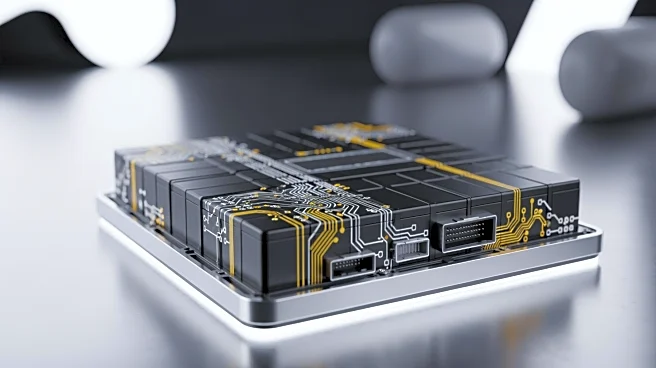What's Happening?
Volkswagen (VW) and Rivian are exploring opportunities to license their electric vehicle (EV) technology to other automakers. VW has a history of licensing its technology, notably its MEB electric platform,
which Ford has utilized for models like the Capri. This move comes as both companies aim to expand their influence in the EV market by providing their technological advancements to other manufacturers. The strategy could potentially increase the adoption of EVs by making advanced technology more accessible to a wider range of automakers, thereby accelerating the transition to electric mobility.
Why It's Important?
The decision by VW and Rivian to license their EV technology is significant for the automotive industry, particularly in the U.S., as it could lead to increased collaboration among automakers. By sharing technology, these companies can help reduce development costs and speed up the production of EVs, which is crucial as the industry faces pressure to meet environmental regulations and consumer demand for sustainable vehicles. This approach may also foster innovation, as automakers can build upon existing platforms to create new models, potentially benefiting consumers with more choices and competitive pricing.
What's Next?
As VW and Rivian move forward with their licensing plans, other automakers may express interest in adopting their technology, leading to potential partnerships and collaborations. This could result in a more integrated approach to EV production, with shared platforms becoming a standard practice. Additionally, regulatory bodies may need to consider the implications of such collaborations on market competition and innovation. The success of this strategy could influence other companies to adopt similar practices, further transforming the automotive landscape.
Beyond the Headlines
Licensing EV technology raises questions about intellectual property rights and the balance between competition and collaboration in the industry. It may also impact the global supply chain, as companies adjust to new partnerships and shared resources. The long-term effects could include shifts in market dynamics, with traditional automakers potentially losing ground to those who embrace shared technology models.











